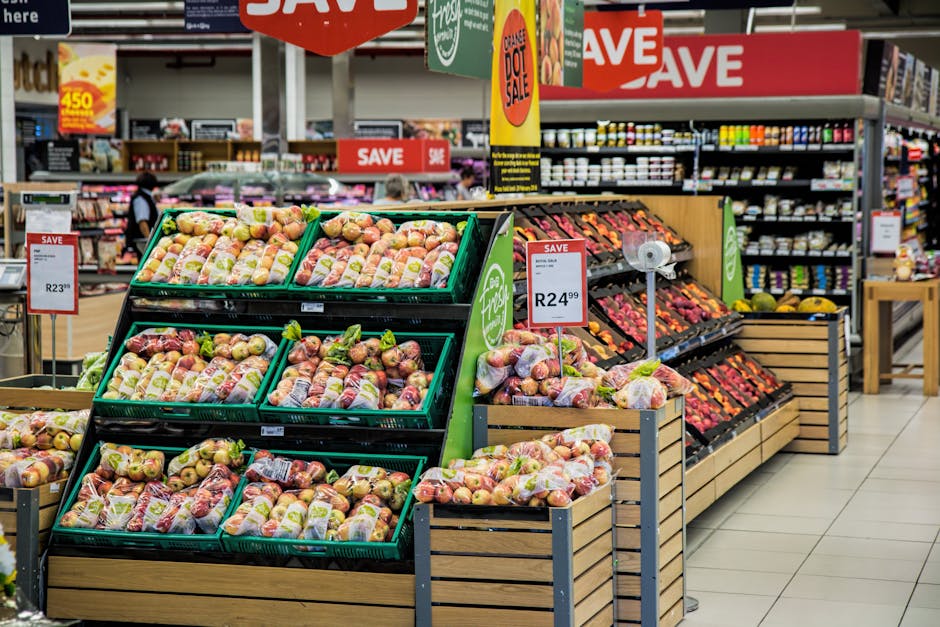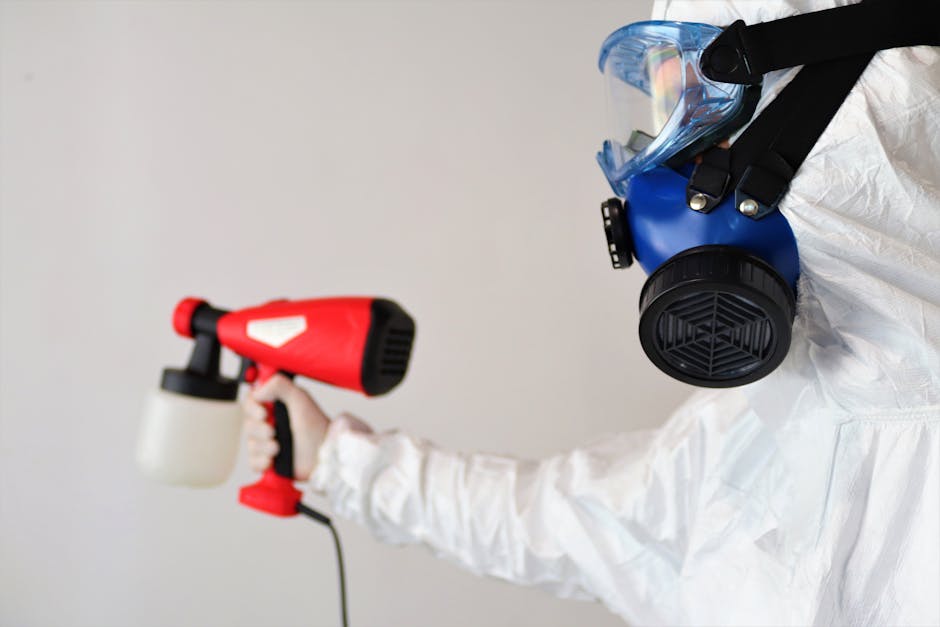Mold Prevention: A Quick Overview for Busy Professionals
- Best Chemicals to Kill Mold: Vinegar, Bleach, Ammonia
- Top Products for Mold Prevention: Concrobium Mold Control, Vinegar, Borax
- Non-Toxic Alternatives for Mold Removal: White vinegar, Thyme essential oil
Mold is not just a nuisance; it’s a health hazard and a risk to your products’ integrity. For consumer goods manufacturers and retailers, the presence of mold can mean damaged goods and dissatisfied customers. It’s essential to act fast and effectively to prevent mold and ensure your products reach your customers in the best condition possible. In this intro, we will discuss the importance of mold prevention, the health risks associated with mold, and provide a concise overview of the best solutions.
Mold thrives in moist environments and can grow on almost any substance when moisture is present. This makes prevention challenging but not impossible. The key is to control moisture and use effective anti-mold chemicals and products. Whether you’re dealing with a small area or a large-scale infestation, understanding the importance of timely and effective action cannot be overstated.

Best Chemicals to Kill Mold
When it comes to battling mold, not all weapons are created equal. Mold can be more than just an unsightly nuisance; it can also pose serious health risks. Let’s look at the top contenders in the fight against mold: Vinegar, Bleach, and Ammonia.
Vinegar – This is your go-to for a safer, non-toxic option. It’s great because it’s accessible and affordable. Vinegar, particularly white vinegar, has been shown to kill 82% of mold species. It’s best used by spraying directly onto the moldy surface and left to sit without rinsing. This method is especially appealing if you’re concerned about using harsh chemicals in your home.
Bleach – The heavy hitter for serious mold problems. Bleach is very effective at killing mold on non-porous surfaces like sinks, tiles, and glass. However, it’s not suited for porous materials like wood or drywall, as it cannot penetrate deep enough to kill the mold at its roots. When using bleach, always ensure proper ventilation and wear protective gear.
Ammonia – Similar to bleach, ammonia is effective on non-porous surfaces. It should never be mixed with bleach, as this creates a dangerous toxic gas. Like bleach, ammonia doesn’t kill mold on porous surfaces. It’s a strong chemical and should be used with caution, ensuring the area is well-ventilated.
Remember: When using any of these chemicals, it’s critical to wear gloves and a mask to protect yourself from fumes and direct contact with these substances. Also, always perform a spot test in an inconspicuous area to ensure that the chemical does not damage the surface you intend to clean.
These anti mold chemicals have their specific applications and limitations. Understanding these can help you choose the right tool for your mold problem. For non-toxic alternatives, consider options like hydrogen peroxide or essential oils, which can be effective against certain types of mold without the harsh side effects.
To ensure you’re using these chemicals safely and effectively, refer to the manufacturer’s instructions and heed any safety warnings. Whether you’re dealing with a current mold issue or looking to prevent future growth, these chemicals can be powerful allies in maintaining a healthy, mold-free environment.
Let’s explore some products specifically designed for mold prevention, providing you with more tools in your arsenal to protect your home and health.

Top Products for Mold Prevention
When it comes to keeping your home or workspace mold-free, the right products can make all the difference. Here, we spotlight three highly effective options: Concrobium Mold Control, Vinegar, and Borax. Each has its unique advantages in battling mold and preventing its return.
Concrobium Mold Control
This product is a favorite among both professionals and DIY enthusiasts. What makes Concrobium Mold Control stand out is its ability to not just kill existing mold but also prevent future growth without using harsh chemicals. It’s easy to apply and works by creating a barrier that mold can’t grow on. Plus, it’s safe for use around pets and children, making it an excellent choice for homes. You can find it at most big-box hardware stores or online.
Vinegar
Believe it or not, your ordinary household vinegar is a powerful anti-mold agent. It’s about 80% effective against mold spores and is a non-toxic option that’s safe for daily use. Simply apply it with a spray bottle directly onto the affected area, let it sit, and then wipe clean. For tougher mold issues, you might need to repeat the process a few times. The acidic nature of vinegar kills mold naturally, making it a great choice for those looking for an eco-friendly option .
Borax
Borax, a natural mineral, is another potent mold killer that’s less known but highly effective. It not only kills mold on the surface but also prevents future growth. Mix it with water to create a solution, then apply it to the moldy area without rinsing. This creates a mold-resistant layer. Like vinegar, Borax is safe and non-toxic, although it should be kept away from pets and children.
By integrating these products into your cleaning routine, you can tackle existing mold problems and prevent new ones from arising. The key to mold control is not just killing it but creating an environment where it can’t grow back.
As we delve into more specialized mold remediation chemicals, it’s crucial to understand how each works and in what situations they’re most effective. Keep reading to discover more about these solutions and how they can be part of your mold prevention strategy.
Effective Mold Remediation Chemicals
When it comes to getting rid of mold, not all chemicals are created equal. Some are more effective than others, and choosing the right one can make all the difference. Here, we’ll explore some of the most potent anti-mold chemicals on the market.
Quaternary Ammonium Compounds
Quaternary ammonium compounds, often referred to as “quats,” are a group of antimicrobial chemicals that are highly effective against mold and mildew. They work by disrupting the cell membranes of the mold, effectively killing it. Quats are commonly used in professional cleaning products and hospital disinfectants because of their broad-spectrum effectiveness. However, use them according to the manufacturer’s instructions to avoid potential health risks from overexposure.
Essential Oils
While not as immediately powerful as some chemical solutions, certain essential oils have been shown to inhibit mold growth. Thyme, tea tree, and clove oils, in particular, have antifungal properties that can be useful in preventing mold spores from taking hold. These oils work best in smaller areas and can be an excellent choice for those looking for a more natural approach. However, they may not be as effective in tackling large, established mold infestations.
RMR-86® PRO
RMR-86® PRO is a bleach-based mold remover known for its fast-acting formula. It’s particularly effective at not only killing mold but also removing the unsightly stains mold leaves behind. This makes it a favorite among professionals who need to show immediate results. Despite its effectiveness, caution is advised when using RMR-86® PRO due to its high bleach content, which can be harsh on surfaces and may release fumes requiring good ventilation during use.
Concrobium
Concrobium Mold Control offers a different approach to mold remediation. Unlike bleach-based products, it doesn’t just kill the mold on the surface but also creates a barrier that prevents mold from returning. It’s a non-toxic, eco-friendly option that’s safe for use around pets and children. Concrobium works by encapsulating and physically crushing the mold spores, making it an excellent long-term solution for mold prevention.
In conclusion, whether you’re dealing with a small mold problem or a large infestation, there’s a chemical solution that can help. Quaternary ammonium compounds offer a strong, professional-grade option, while essential oils provide a more natural approach. For immediate stain removal and mold killing, RMR-86® PRO is highly effective, whereas Concrobium offers a safer, preventive solution. The key to successful mold remediation is not just killing the mold but creating an environment where it can’t grow back. Choosing the right product for your specific needs is crucial in achieving a mold-free space.
For more detailed insights on mold prevention and removal, consider exploring resources like this comprehensive discussion on non-chemical mold removal methods .
Non-Toxic Alternatives for Mold Removal
In the quest for a mold-free environment, not everyone is comfortable using harsh chemicals. Luckily, there are non-toxic options that are both effective and safe. Let’s dive into some of these alternatives:
White Vinegar
Vinegar is not just for salad dressing. This kitchen staple can kill mold on surfaces. You don’t need the fancy stuff; plain white vinegar will do. Simply spray it onto the moldy area, let it sit for an hour, and then wipe clean. The smell may be strong at first but will dissipate. Vinegar is great because it’s accessible, affordable, and non-toxic.
Thyme Essential Oil
If you’re looking for something that smells a bit nicer, thyme essential oil is a powerful fungicide. It’s been used in natural cleaners like Benefect for its ability to kill mold. To use, add a few drops to water in a spray bottle and mist onto affected areas. Not only will it help tackle the mold, but it’ll leave your space smelling fresh.
EC3 Candles
These aren’t your average candles. EC3 candles are designed to reduce mold count in the air. Burning these candles for a few hours each day can help maintain a healthier air quality, especially in damp environments. It’s a passive way to fight against mold spores circulating in your home.
While these methods are safer, consistency is key. Non-toxic alternatives may require more frequent application compared to their chemical counterparts. However, they offer peace of mind, especially in homes with pets, children, or sensitive individuals.
Transitioning from harsh chemicals to these non-toxic alternatives not only benefits your health but also the environment. It’s about not just removing the mold but ensuring your space remains a safe haven.
It’s clear that understanding the various options available for mold removal is crucial. Whether opting for strong chemicals or natural solutions, the goal remains the same: a mold-free environment. For those interested in exploring further non-toxic methods, engaging with communities online can provide additional insights and recommendations .
Next, we’ll answer some of the most frequently asked questions about anti mold chemicals, helping you make informed decisions in your mold prevention and removal efforts.
Frequently Asked Questions about Anti-Mold Chemicals
When tackling mold, you’ve got questions; we’ve got answers. Let’s dive into some of the most common queries about anti mold chemicals.
What is the best chemical to kill mold?
Bleach, Vinegar, Ammonia – these are your go-to warriors in the battle against mold. Each has its strengths:
- Bleach is like the heavy hitter. It doesn’t just kill mold on the surface; it decimates it, making sure it’s gone for good. But, it’s also harsh and not suitable for all surfaces.
- Vinegar is your friendlier option. It’s less potent than bleach but still very effective, especially if you’re looking for something safer and more natural.
- Ammonia works well, but like bleach, it’s strong stuff. Never mix it with bleach, as that creates dangerous fumes.
What chemical prevents mold?
To keep mold at bay, think Concrobium Mold Control and Vinegar. Concrobium Mold Control is a bit of a jack-of-all-trades – it kills mold and prevents it from coming back. Vinegar, while simpler, can inhibit mold growth with regular application. It’s about creating an environment where mold just can’t thrive.
What is the best product to prevent mold?
For prevention, you can’t go wrong with Vinegar and Borax.
- Vinegar is easy to find and use. A simple spray-down can deter mold growth without introducing harsh chemicals into your home.
- Borax, on the other hand, is a bit of a hidden gem. It’s not only great at preventing mold but also at killing existing mold. Plus, it’s safer than some of the harsher chemicals out there.
In conclusion, when choosing the best anti mold chemicals, consider the severity of your mold issue, the surfaces you’re treating, and your personal safety preferences. Whether you go for the strong, immediate action of bleach and ammonia or prefer the gentler, more natural approach of vinegar and borax, the goal remains the same: keeping your space mold-free effectively and safely.
Moving on, let’s wrap up with some final thoughts on mold prevention strategies and why choosing the right chemical matters.
Conclusion
Mold is more than just an unsightly nuisance; it can pose real health risks to you and your family. That’s why mold prevention isn’t just a one-time task—it’s an ongoing strategy. And in this battle, the choice of anti mold chemicals plays a crucial role. Whether it’s the robust power of products like RMR-86® PRO or the natural effectiveness of vinegar, the key is to select the solution that best fits your needs and the specifics of your mold problem.
Prevention is always better than cure. Keeping your environment dry, well-ventilated, and clean is the first line of defense against mold. But when mold does appear, choosing the right chemical to tackle it is essential. It’s not just about killing the existing mold; it’s about ensuring it doesn’t come back. This is where the expertise and products offered by Micro-Pak Distribution USA can make a significant difference.
At Micro-Pak Distribution USA, we understand the complexities of mold prevention and offer a range of solutions designed to keep your goods mold-free from factory to retail. Our commitment to safety and sustainability means you can trust our products to not only be effective but also environmentally friendly.
To sum up, successful mold prevention hinges on understanding the nature of mold, maintaining a clean and dry environment, and choosing the right anti mold chemicals for your specific situation. With the right strategies and products, such as those offered by Micro-Pak Distribution USA, you can protect your space from mold and the problems it brings. Managing mold is not just about reacting to what you see; it’s about preventing what you don’t want to see in the future.

Taking action today with effective mold prevention strategies and the right chemicals can save you time, money, and health risks down the line. Let’s keep our spaces safe and mold-free, together.


Recent Comments